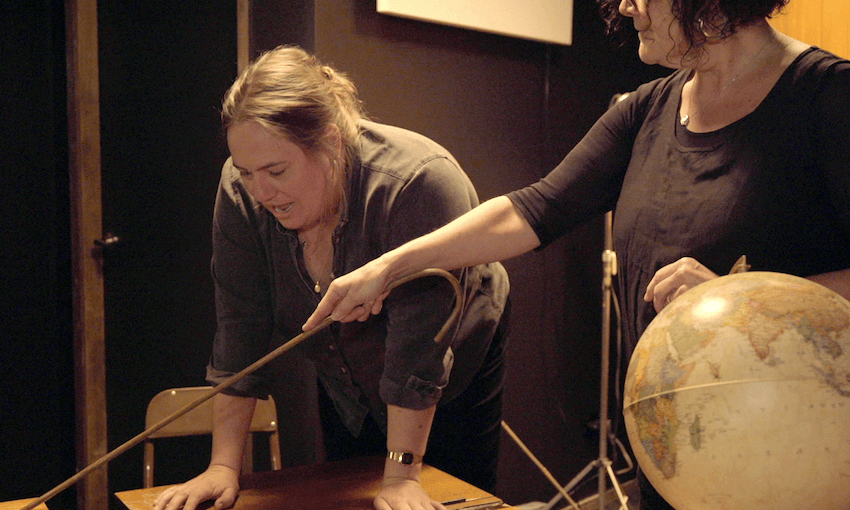Visiting a brothel for the new series of Bad News helps convince Alice Snedden that sex work should be available to everyone.
Beyond my teenage obsession with the movie Pretty Woman, my knowledge of the sex work industry has always been extremely limited. Like a lot of people I saw it as something I knew existed, but not something I was ever likely to engage with. I was excited to visit Madame Mary’s place for the latest episode of Bad News – I’d never been to a brothel before, so I had no idea what to expect, what it would look like or how it would make me feel (Horny? Sad?).
I’ve always had conflicted feelings about sex work. While I completely support it being legal, it took me a while to feel sincerely neutral about people actually engaging in it. The prospect of exploitation made me hesitant, and the transactional nature of the sex made me feel uncomfortable. For a long time, I reacted to other people’s desires for sex with strangers as attacks on my own desire to have sex with people I knew. Like most of those who feel the need to comment on others’ sex lives, I was probably feeling threatened.
Thankfully I’ve evolved a bit since then. I remember a conversation with my dad where he mentioned he supported the concept of sex work. At the time I was shocked. My parents are Catholic, and it was their view that sex should exclusively be a part of a relationship – a view I had been trying to shake as a young adult. But as Dad pointed out, people need intimacy. It’s a basic function of existence, and physical intimacy is an important part of that. Who was I to judge anyone who sought that from a paid professional?
This remains my basic stance today – if everyone involved is keen, just do what you want. I recognise that sexual desire and sexual intimacy take different forms for different people, and that beyond the experience being mutually consented to, there is no universal standard. Also, after a bunch of shitty sex in my 20s, I get the appeal of just paying a professional to do something right.
It was these old questions of morality that I thought I’d be most struck by when I visited Madame Mary’s workplace. Instead what I was most taken with was the decor. Carefully selected mid-century furniture, dark walls and polished ply ceilings – it was a truly beautiful space. I spent my first ten minutes there interrogating Mary on the process of using coconut oil to treat the plywood, discovering how she finds good deals on Trade Me, and wondering how their carpet still feels so soft. We spoke about sex work, but we also spoke about what it’s actually like to own a Dyson vacuum cleaner (one of my major goals for the future).
As New Zealanders we pride ourselves on our world firsts, and the sex work industry is no different. Being the first nation to decriminalise sex work is one of the achievements we boast about, but we still haven’t gone far enough. Talking to Dame Catherine Healy and then-immigration minister Iain Lees Galloway, it became apparent that parliament, like the confused teenager I once was, had let their own mortality unfairly shape the law.
I think morality should play a part in politics – ideally, it should drive governments to make decisions in the best interests of their citizens. But so often, the opposite happens. Fortunately, laws can be changed and amended, and we get to make up for our past poor decisions. The legal status of migrant sex workers in New Zealand is one of the many places we could start.
Alice Snedden’s Bad News was commissioned by RNZ and made possible by the RNZ/NZ On Air Innovation Fund
